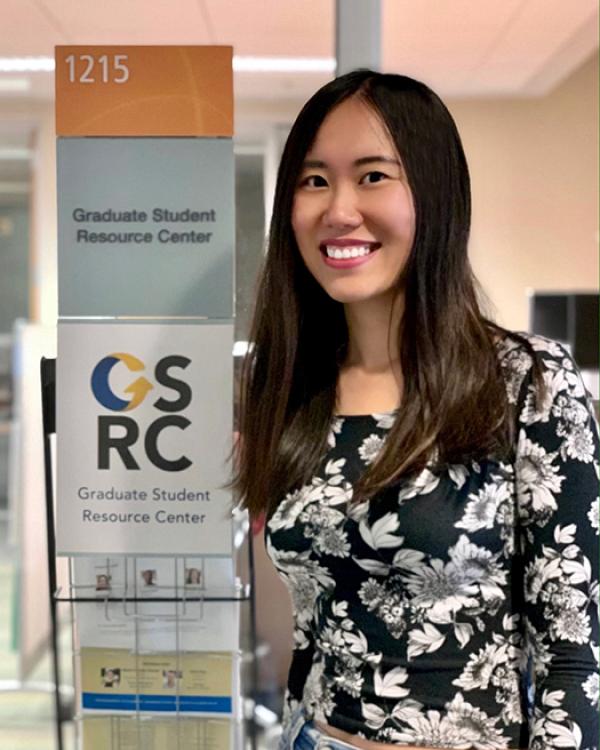
Simeng (Karen) Li just graduated with a Ph.D. in Special Education, Disability, and Risk Studies (SPEDR) from the Department of Education.
GGSE: What are your research interests, and why are they important to you?
Li: My primary interests are special education and instructional technology. As a researcher, my greater goal has always been to help others, and I consider that trait to be an essential part of me. As I progressed in graduate school, I sought to combine my background and research interests in technology to benefit the advancement of learning and education, specifically for the community of individuals with special needs.
GGSE: What's one piece of information you wish every person knew and remembered about your research?
Li: Autism is a syndrome of behavioral deficits that can be changed through structured treatments, and my research sheds light on effective interventions to address students’ difficulties in social communication and interactions.
GGSE: Tell us about your dissertation. Why are you proud of it?
Li: My dissertation examines the effectiveness of a software application-based intervention program that embeds several widely recognized evidence-based practices into an adaptive training system to directly address the challenges in core social skills faced by Chinese children with autism. I compared the treatment and control group via a randomized controlled trial pretest-posttest design and a series of multiple probe across participant design. The results demonstrated that participants who received the intervention functioned at a significantly higher level at posttest than those who received treatment as usual.
GGSE: What's next? What do you hope to do after earning your Ph.D.?
Li: To me, completing a Ph.D. means a beginning to a chapter as yet to be written. I moved to the San Francisco Bay Area. Besides taking a well-deserved break to recharge the internal motivation that keeps me going, I have a new list of things that I plan to accomplish for my transition into an industry position.
GGSE: What piece of advice would you pass on to future students in the Gevirtz School?
Li: You are not alone, and please never struggle on your own. There are professors and staff members who are rooting for you to succeed and want to help you get through difficulties — have frank discussions with them! If you get confused about where to start and who to talk to, besides GGSE, there is a hidden gem called the Graduate Student Resource Center.
GGSE: Is there anyone in the Gevirtz School you would like to thank?
Li: I especially thank my advisor, Dr. Mian Wang, for guiding me to find my direction in the research world and transforming behavioral sciences into some of the coolest educational technologies I have ever had the pleasure to be involved with. It was also enjoyable to witness our cross-continental phone meetings slowly evolve into international collaborations of anything and everything pertaining to the final product and the research experiments. I also want to express my sincere thanks to Dr. Michael M. Gerber and Dr. George H.S. Singer, for their ongoing and invaluable guidance. None of my work would have been possible without the level of support, trust, and sincerity that I have received from my committee members. I extend thanks to my SPEDR cohort, who have made the ups and downs of the program fun to contend with. Thank you to everyone in GGSE, for being part of this shared experience, which has added so much to my academic life.
GGSE: What is one of your favorite memories of your graduate school experience?
Li: My experience over the past three years working as the International Peer Advisor at the UCSB Graduate Division has been overwhelmingly positive. A deep thank you to my supervisors, who made each workday seem filled with sunshine: Dr. Robert Hamm, Dr. Shawn Warner, and Lana Smith-Hale. Thank you for choosing me to be the trailblazer who broke through the campus service gap by being proactive not only in serving as the campus-wide advisory liaison assisting students navigating graduate school but also in identifying strategic goals and areas of improvement for our office to build partnerships and develop new initiatives to support the best practices for student success.